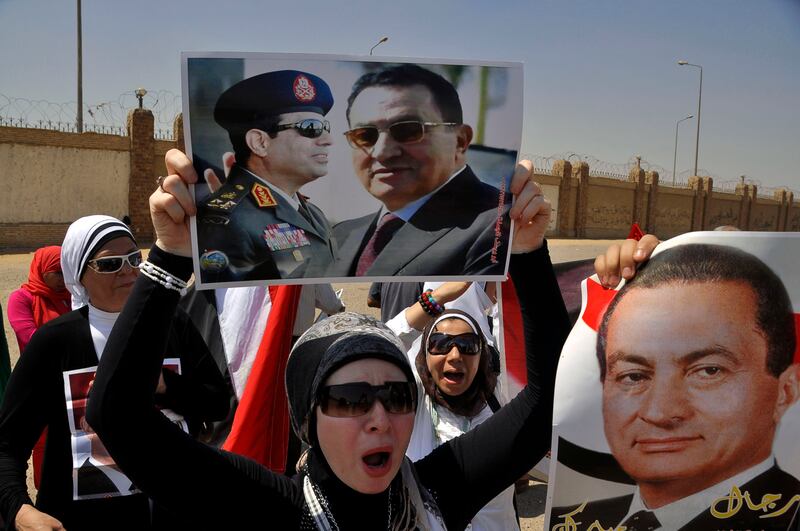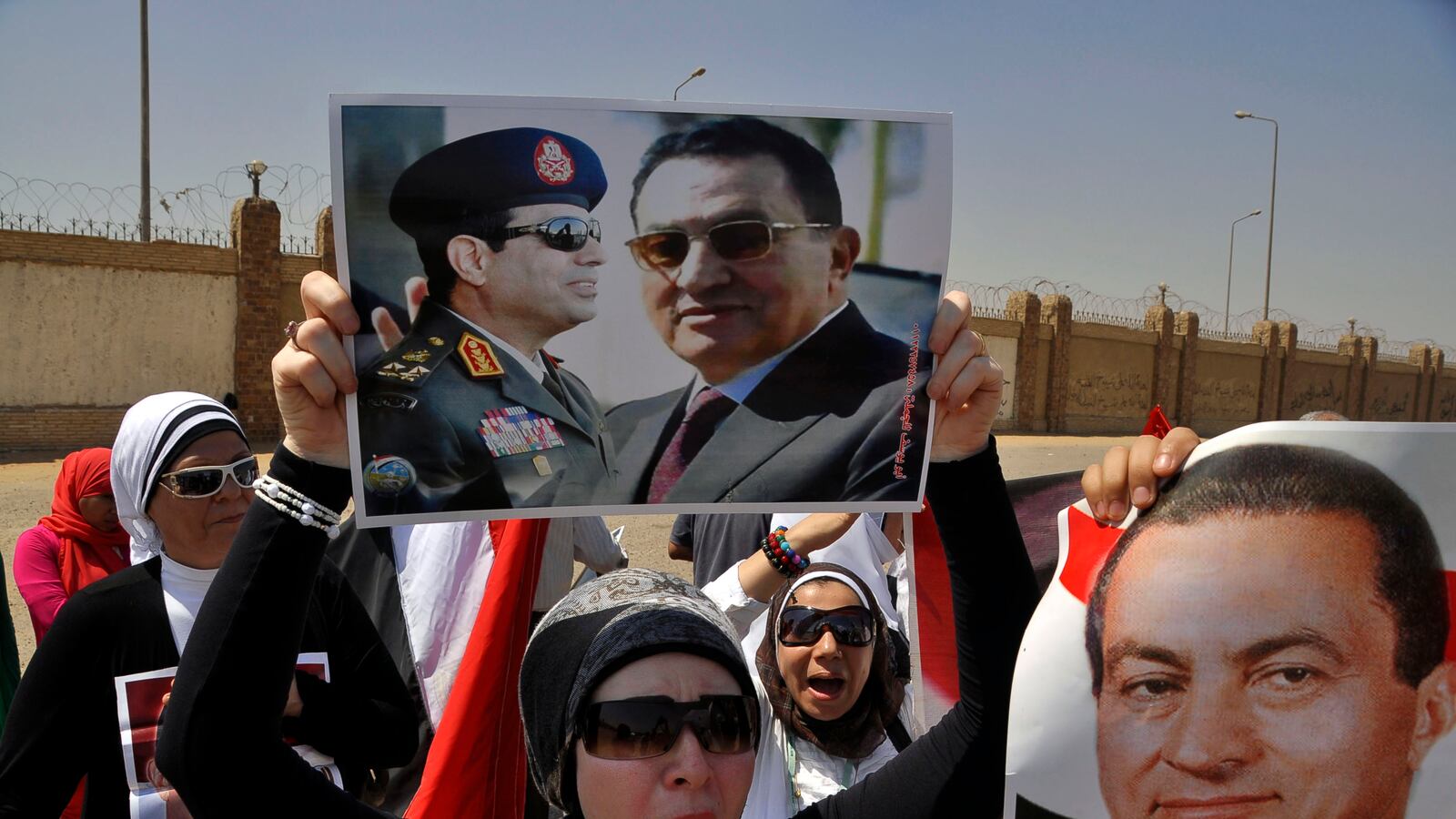Ever since July 3, when Egypt's military overthrew the country's first democratically-elected president in an increasingly bloody coup, I've had an uneasy feeling about the future of the revolution that started in 2011. Last Sunday, the military expanded its crackdown to opposition beyond the Muslim Brotherhood and seasoned revolutionaries turned tools of the repression. As the breadth of the counterrevolution became clear, my unease turned to despair.
I was in Cairo during the constitutional crisis last December and again during the second anniversary of the revolution in January and February. At that time, the streets were still the center of politics, Mohamed Morsi was president and Hosni Mubarak was in jail. Now, much like 2010, Morsi is in jail, Mubarak isn’t, and the military suppresses politics coming from the street. This time, many leading progressives enthusiastically supported the military administration and, alongside the political and social opposition, returned the generals to power.

Although front and center in the protests raging against Morsi's neglect of the spiraling economic crisis and increasingly autocratic style earlier this year, leading revolutionaries were careful to not allow the military to use the opportunity to take center stage. However, the recent change in strategy—to take to the streets and cheer the generals—could have been, perhaps unbeknownst to them, the death knell of Egypt's developing struggle for people power.
In December, I sat in Cairo’s famous Café Riche as National Salvation Front (NSF) official and steering committee member of Mohamad ElBaradei’s Constitution Party Ahmed Hawari told me that his movement fought both “Islamic fascism and military fascism." The army had started to test the waters by publicly setting red lines for intervention in politics, while mass demonstrations over the neglect of women’s rights, individual freedoms, and labor rights in the Constitution filled Tahrir Square, just three blocks away.
Flanked by press officials in the café whose basement was used by Gamal Abdel Nasser to plan his 1952 coup, Hawari emphatically recalled his activism in both the 2011 revolution and resisting the Supreme Council of the Armed Forces (SCAF), whose transitional rule followed Mubarak. Noting the Army’s self-serving interest in maintaining ownership over roughly a third of Egypt’s economy and keeping U.S. military aid flowing, he insisted that the fight against Morsi’s direction for the country must be won through popular struggle.
Months later, in the early hours of July 4, I saw Hawari live on CNN, denying the military takeover was a coup. At that moment, Egyptian security forces were closing pro-Morsi media outlets. Like Hawari, many street demonstrators embraced military intervention, and denied it was a coup. Despite the army's legacy of presiding over one of the most intense periods of Egyptian rights violations, those in the streets supporting Gen. al-Sisi resurrected the slogan from February 2011 that “the people and the army are one hand”—then a means of encouraging the military to remove Mubarak, but today a call for the strong-man tactics that made the army a central pillar of Mubarak's rule.
As the new-old regime re-polarizes politics amid a state of emergency, making people choose between authoritarian military rule and an increasingly underground Muslim Brotherhood, it is the people who are being sidelined. Despite the chaos, the power of Egyptian mass protest to drive politics stood as the 2011 uprising's only lasting success. This dynamic made all the would-be power players look to mobilize ordinary Egyptians in support of their causes, the opposite of Mubarak’s state, where politics was decided away from public opinion.
Sunday’s news came to a chillingly appropriate close with the interim labor minister Kamal Abu Eita scapegoating the Muslim Brotherhood—as the Army repressed a Suez strike over health care and wages. I met Abu Eita in Cairo in early February at a labor congress during protests marking the second anniversary of the Egyptian revolution. The then-head of the Egyptian Federation of Independent Trade Unions, known for organizing the general strikes pivotal in bringing down Mubarak, led a delegation of unions threatening to withdraw their support for the NSF unless the front took strong pro-worker economic policies.
Later, at the union federation’s rundown Cairo offices, he talked about how his union was hearing about new strikes on a daily basis and the importance of Egyptian workers forming independent unions that democratically represent their members.
The calls that the wily former labor leader made for factory nationalizations and enshrined workers' rights now seem a distant echo, as he colludes with a cabinet of old-regime figures and technocrats, fighting an uphill battle to get minimum-wage laws passed.
The progress towards popular power and social transition in Egypt is rapidly reverting to the insular and divided society it was under Mubarak. With more than a thousand killed and many more arrested—including well-known Canadian filmmaker John Greyson and ER doctor Tarek Loubani, who were taken in Cairo while en route to Gaza—the Egyptian street is steadily being lost to the Army.
The most devastating act to the popular demands of January 2011 was the welcome the generals received in the street when they deposed Egypt’s first democratically-elected president. The revolutionaries jumped into bed with them. Just over a month later, after the crackdown on largely peaceful pro-Morsi sit-ins, those revolutionaries, too, would be kept indoors at night as a curfew, unusually well enforced with sniper fire, hung over Cairo and other Egyptian districts.
The streets gave birth to Egypt's revolution. By flooding those streets in support of the Army, the people have undercut their own newfound power, and maybe cost themselves a revolution.





